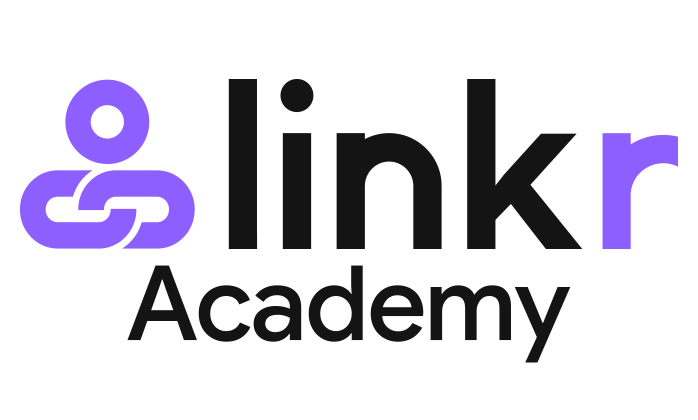Content Marketing vs Product Marketing: Key Differences and Things to Know
When it comes to digital marketing, there are two different approaches you should know about: content marketing and product marketing. Both play important roles in driving business success, but they have unique characteristics, objectives, and techniques that are tailored to different stages of the customer journey.
Today, we’ll explore the key differences between these two strategies, highlighting their individual strengths and discussing important aspects of each approach. We’ll also help you figure out how to to choose between content marketing and product marketing for your business.
So, without further ado, let’s dive right in!
Table of Contents
What is content marketing?

Content marketing is a strategic approach to marketing that involves creating and sharing valuable, relevant, and consistent content to attract and engage a specific audience.
The focus is on providing value to the audience, entertaining stories, educational resources, answering questions and offering solutions or inspiring narratives that connect with the audience.
The main goal of businesses and digital creators who do content marketing is to position themselves as reliable sources, increase their visibility, raise brand awareness, establish credibility, cultivate a devoted following, and ultimately drive profitable customer action.
Understand Why is Content Marketing Important for Digital Creators (Examples)
What is product marketing?

Product marketing, on the other hand, focuses specifically on promoting and positioning a product or service to target customers. It is about comprehending the distinct selling points, features, and benefits of a product or service and communicating them effectively to the target audience. Its objective is to create demand, increase sales, and improve market adoption of a particular offering.
Product marketing entails developing convincing messaging, writing engaging product descriptions, emphasizing special characteristics, and illustrating how the product responds to the target market’s wants and desires. To ensure effective positioning and advertising of the product, it also entails market research, competition analysis, price strategies, and defining the target audience.
Key differences between content marketing and product marketing
Focus and objective

Content marketing is primarily focused on providing valuable content to educate, entertain, and engage the audience. Its objective is to build brand awareness, establish authority, and foster relationships.
Contrarily, product marketing is focused on promoting a particular good or service. Its goals are to create demand, promote sales, and strategically position the product in the market.
Content vs product-centric approach
Content marketing revolves around creating and delivering informative, entertaining, or inspiring content to the audience. The content itself is the primary focus, and the goal is to provide value to the audience.
Product marketing, however, is centered around the product or service itself. The focus is on highlighting its features, benefits, and unique selling propositions to drive customer interest and purchase.
Target audience

Content marketing aims to reach a broader audience and engage with potential customers at various stages of the customer journey. The content is designed to attract and resonate with a wide range of individuals who may have different interests or pain points.
When it comes to product marketing, the goal is to appeal to a specific audience that is likely to be interested in the promoted product or service. The messaging and positioning are customized to address the target audience’s specific needs and preferences.
Timing and stage of the customer journey
Content marketing is effective throughout the entire customer journey, from awareness to consideration and decision-making stages. It provides valuable information that educates and influences the audience at each step, building trust and nurturing relationships.
Product marketing is all about convincing people that your product or service is just what they need. It’s especially important when they’re deciding what to buy. That’s when you really want to make your pitch and show them why your product is the best thing out there.
Content marketing channels
1. Blogging

Content marketing often involves creating and maintaining a blog where valuable and informative articles are published regularly. Blogs allow for in-depth content creation and engagement with the audience through comments and discussions.
2. Social media
Social media networks like Facebook, Twitter, Instagram, LinkedIn, and YouTube are used by content marketers to disseminate and advertise their material. Through likes, shares, and comments, social media allows for a large audience reach and audience involvement.
3. Email marketing

To offer helpful content directly to subscribers’ inboxes, content marketers utilize email marketing. Through newsletters, updates, and special content offers, this channel makes it possible to communicate in a tailored way and develop relationships with the audience..
4. Video marketing
Content marketers create and distribute videos on platforms like YouTube, Vimeo, and social media. Video content is highly engaging and can effectively communicate complex ideas, tutorials, and storytelling.
5. Podcasting
Podcasts are audio files that content marketers create and disseminate to audiences so they can hear and participate in interviews, discussions, and other relevant material.
Further explore 10 Types of Creative Content Marketing (examples) and How They Work
Product marketing channels

1. Product pages on websites
Product marketers put their efforts into developing specialized web pages that offer thorough details about the product, including features, benefits, pricing, and purchase options.
2. E-commerce platforms
To exhibit and sell their products directly to customers, product marketers use e-commerce platforms like Shopify, WooCommerce, or Amazon.
Compare Creator Shop vs E-commerce Platforms: Which is Right for You?
3. Online marketplaces
Product marketers can reach a wider client base and take advantage of the platform’s built-in audience by selling through online marketplaces like eBay or Etsy.
4. Online advertising
Through paid online advertising channels like Google Ads, social network ads, or display ads, product marketers are able to promote their products, sell their goods, and send targeted traffic to their product websites or e-commerce platforms.
5. Influencer collaborations
Product marketers collaborate with influencers or key opinion leaders to present and promote their products to their loyal audience, taking use of the influencer’s authority and audience.
Content marketing v.s. product marketing
| Aspects | Content Marketing | Product Marketing |
| Focus | Provides valuable content to educate and engage | Promotes and positions a specific product or service |
| Goal | Build brand awareness and establish authority | Drive sales, generate demand, and increase market adoption |
| Target Audience | Broad audience with varying interests | Specific audience interested in the product or service |
| Timing and Customer Journey | Throughout the customer journey | More prominent during consideration and decision-making stages |
| Primary Content Channels | Blogging, social media, email marketing | Product pages on websites, e-commerce platforms |
| Additional Channels | Video marketing, podcasting | Online marketplaces, online advertising, influencer collaborations |
| Key Communication | Educates, entertains, and engages the audience | Promotes product features, benefits, and solves pain points |
| Metrics | Engagement metrics (views, shares, comments) | Conversion metrics (sales, conversion rates, customer acquisition) |
| Integration Potential | Can support product marketing efforts | Can leverage content marketing to enhance product promotion |
The synergy between content marketing and product marketing

While content marketing and product marketing have distinct objectives and approaches, they are not mutually exclusive. In fact, these two approaches can complement one another and generate successful digital marketing strategies.
By delivering educational and entertaining content that highlights the benefits of the good or service, content marketing can assist product marketing efforts. Businesses and digital creators can successfully position their offers and stimulate demand by producing instructional resources, case studies, testimonials, or content that is specifically focused on their products.
Product marketing can make use of the knowledge gleaned through content marketing initiatives to comprehend the target market, their preferences, problems, and interests. To build customized message, enhance product positioning, and hone marketing tactics, use this data.
Learn How to Create a Content Marketing Strategy: The Ultimate Guide
Which is best for your business?

When deciding between content marketing and product marketing for your business, consider the following factors:
- Goals: Clarify your marketing goals. Determine if your aim is to build brand awareness, establish thought leadership, educate your audience, drive sales, promote specific products, or generate demand.
- Audience: Understand your target audience and their needs. Consider whether providing valuable content through educational resources and storytelling or promoting product features and benefits to address their specific pain points would be more effective in reaching and resonating with them.
- Customer journey: Analyze where your audience stands in their customer journey. If they are in the early stages, content marketing can help build trust. If they are further along the journey, product marketing can convince them to choose your offering.
- Resources: Evaluate your available resources, including time, budget, and expertise. Consider which approach aligns better with your resources and capabilities.
- Integration: Assess how content marketing and product marketing can work together as a cohesive marketing campaign.
Make use of content marketing tools and platforms
To maximize the impact of content marketing and product marketing efforts, digital creators can utilize various content marketing tools and platforms. Linkr, for example, offers a range of features tailored to the needs of creators.
With the help of Linkr Posts, creators can efficiently organize and schedule their social media content to maintain a consistent presence across all platforms. Additionally, Linkr Online Store gives creators and businesses a dedicated location to promote their goods and services, making it simple for their audience to browse and buy.
Conclusion
It’s important for any business to have both content marketing and product marketing as part of their digital marketing strategy.
Content marketing is all about delivering valuable content to engage your audience and build brand awareness, while product marketing focuses on promoting specific products or services to generate demand and drive sales.
The great thing is that one isn’t necessarily better than the other! By leveraging their synergies, businesses and digital creators can create comprehensive marketing campaigns that effectively capture the attention, interest, and loyalty of their target audience.




